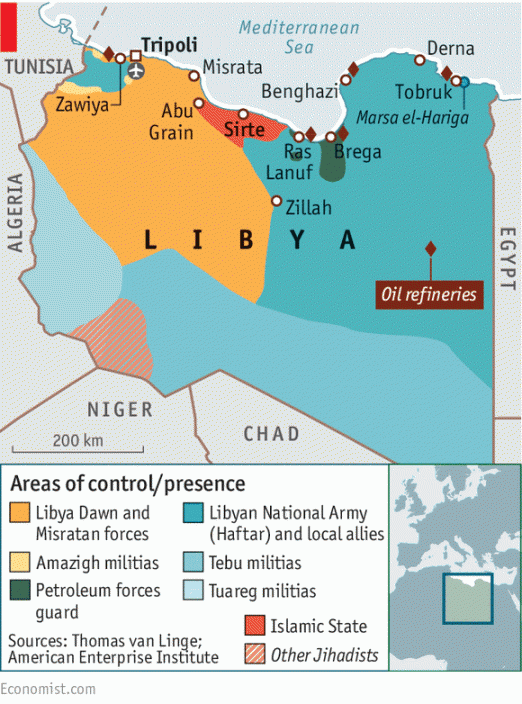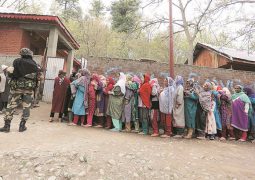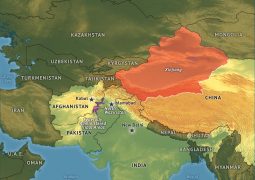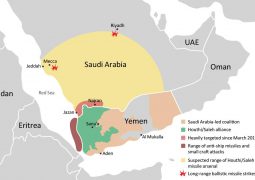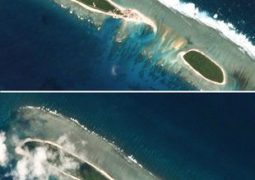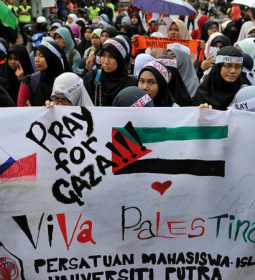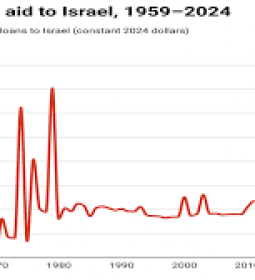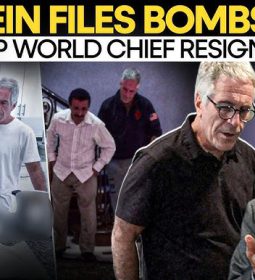Haftar’s forces chase Libya militia after recapturing oil ports with surprise attack
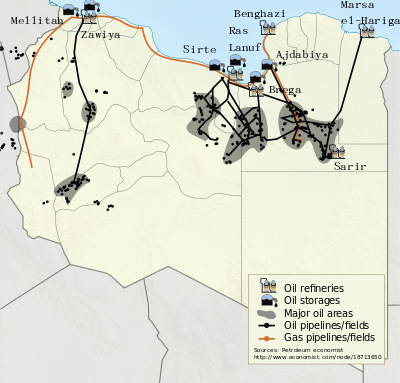
The Libyan National Army pressed its offensive against militiamen in central Libya on Wednesday, one day after recapturing two key oil ports in a lightning offensive.
Fighting for Sidra, Libya’s biggest oil port, and the nearby refinery of Ras Lanuf, has been going on since March 3 when a militia, the Benghazi Defence Brigades, captured them from the army.
On Tuesday, after days of bombing militia positions around the ports by fixed-wing jets and helicopter gunships, the army – supported by Libya’s elected parliament, the House of Representatives, and headed by Field Marshal Khalifa Haftar – struck back.
Mechanised units drove 60 kilometres westward along the coastal motorway from the front line at a small coastal settlement, Ugaylah. Simultaneously, according to sources in Tobruk, where the House of Representatives is based, army units were transported by naval craft to the ports, apparently managing to surprise the militia. Fierce firefights developed through the day, with the Benghazi Defence Brigades later fleeing west and south into the Sahara.
Late on Tuesday, army spokesman Colonel Ahmed Mismari said both ports had been recaptured intact with no damage to the facilities.
Footage on social media showed smashed militia lorries holding grad rocket launchers and jeeps, some flipped upside down by the fury of days of air strikes which had pounded militia positions around the ports. Residents of Ras Lanuf were seen cheering as columns of army units passed, their khaki-coloured jeeps displaying red banners to show they were friendly jets and helicopters.

By nightfall on Tuesday, army units had freed two towns further west, Ben Jawad and Harawa, from the militia. On Wednesday, the army then launched air strikes against Benghazi Defence Brigade barracks near Hun, 270km south-west of the ports.
Fighting at the oil ports has been surrounded by allegations of atrocities, including the apparent capture and beheading of two army soldiers after the ports were captured earlier this month. Britain’s ambassador to Libya, Peter Millet, tweeted on Tuesday: “Horrified and disgusted by reports of beheading of 2 #Libya-n army soldiers in Ras Lanuf.”
The Benghazi militiamen insist they are independent of any government, but on March 7 they announced that both the captured ports had been handed over to the UN-supported Government of National Accord (GNA), a rival to the House of Representatives which has its own government.
GNA control of the ports was short-lived, however.
The House of Representatives is now back in control of the entire so-called Oil Crescent, a collection of oil wells containing 80 per cent of Libya’s current oil production. On Tuesday night, the House of Representatives speaker, Agila Saleh, congratulated the army for recapturing the two ports.
The victory is an apparent vindication of the strategy of the army’s commander, Field Marshal Haftar. After the ports were taken by the militia on March 3, he massed a force of 5,000 troops at Al Ugaylah, but delayed a counter attack.
While he received political backing for the attack from a council of elders of key eastern tribes on March 9, he appears to have delayed the attack until Tuesday to allow air strikes to destroy key militia targets.
Meanwhile in the capital, Tripoli, fighting between two militia alliances continued on Wednesday for a third day, with tank fire and artillery thundering in the streets. The luxury Rixos Hotel complex, home to Libya’s third would-be government, known as the National Salvation Government, was overrun by militias supporting the GNA.
Two shells hit Tripoli’s Hadba hospital, which was evacuated. No casualty figures have been released by hospitals, due in part to the confusion of street-to-street fighting.

A joint statement issued on Tuesday night by the ambassadors of France, Italy, the United Kingdom and the United States called for an end to fighting in the oilfields, but made no reference to the Tripoli battles.
It said the countries “reiterate their strong concern regarding violence in the Oil Crescent and call for an end to hostilities, avoiding any action that could damage Libya’s energy infrastructure”.
Libyan oil production dipped from 700,000 barrels a day when fighting began on March 3 to 620,000 by the end of last week, the latest figures issued by the National Oil Corporation show. It is uncertain if it will now return to levels before the battle began although reports suggest port facilities are undamaged by the fighting.
- Previous Erdogan lashes EU over ‘anti-Islam crusade’
- Next Sosilawati murder: Ex-lawyer, two farmhands lose final bid to dismiss conviction, death sentence


